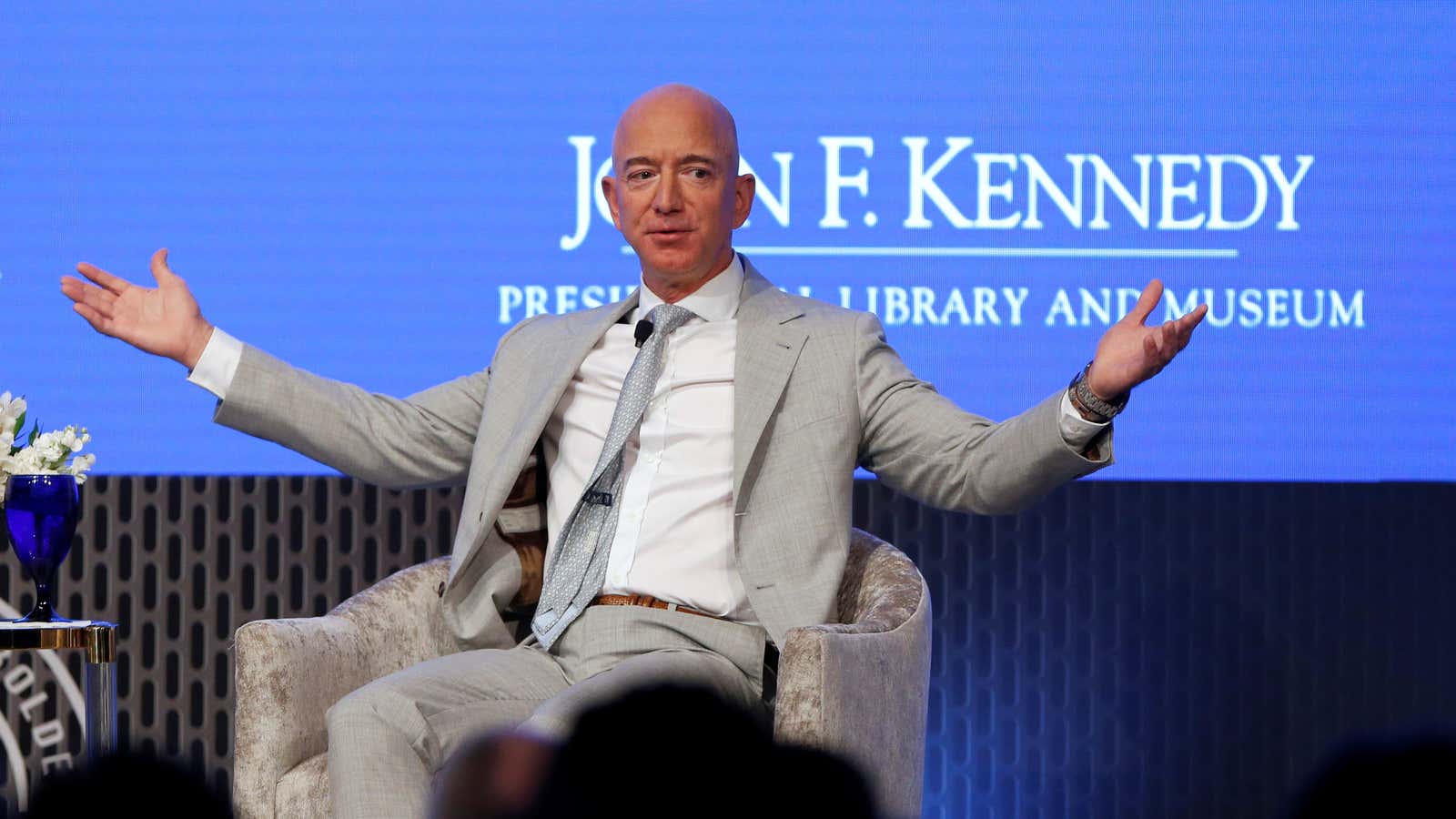There are more people with a billion dollars today than at any other time in history. And there are more people with multiple billions of dollars too.
A billion dollars sounds like a lot. But only when you break it down does the true breadth of this kind of wealth become understandable.
Let’s start here: The average annual income of a full-time salaried worker in the United States in 2018 was $46,800. And let’s assume this average worker paid no rent, no bills, no taxes, no expenses of any kind. In fact, let’s pretend this person spends no money at all. They just make money.
By the time their wealth amounted to $1 billion, more than 21,000 years would have passed. That is the amount of time it has taken human civilization to evolve from cave-dwelling to where it is today.
But while a billion dollars is a ludicrous amount of money for any one person, it isn’t even close to the wealth of the richest of us all. In America, that is Amazon founder Jeff Bezos. His net worth is estimated to be north of $130 billion. For America’s average worker, that equates to almost 2.8 million years worth of work (again, without spending anything).
That is more than 10 times longer than scientists believe Homo Sapiens have existed on Earth.
Not all Americans are lucky enough to be average, though. Amazon’s lowest-paid employees, for instance, aren’t. The company—which is the source of Bezos’s wealth—made headlines for volunteering a minimum hourly wage of $15 for all its American employees, even in places where the law doesn’t mandate the minimum. This means the lowest paid, full-time Amazon workers make $31,200 a year. So in just 4.15 million years, they would have earned as much as their boss.
This extreme inequality is only growing. According to an in-depth study released this week, wealth is increasingly concentrated in fewer hands because of uneven access to the educational opportunities necessary for social promotion, not to mention decades of tax breaks for the wealthy. It’s gotten even worse in the US, where tax cuts pushed by US president Donald Trump have given the wealthiest yet another big advantage. For the first time in history, in fact, the working class paid a higher effective tax rate in 2018 than the country’s billionaires.
